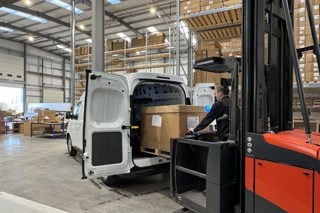Confusing employment legislation should be overhauled after the latest gig economy case was decided in the courts.
That’s the view of tax advisers at Qdos Contractor given the current uncertainty surrounding the future of IR35 – the legislation designed to combat tax avoidance by self-employed contractors.
It is widely expected the responsibility for setting employment – and, therefore, IR35 status – will soon be handed from contractors to private sector companies, much like it happens in the public sector.
Qdos says that would see private sector companies liable for any missing tax should an HMRC investigation conclude the companies have set a contractor’s IR35 status incorrectly.
In the latest case, labour law body the Central Arbitration Committee (CAC) ruled that riders at Deliveroo are self-employed.
The Independent Workers Union of Great Britain (IWGB) had brought the case against the delivery company, demanding workers’ rights and union recognition.
However, the CAC decided riders were self-employed after hearing they had the freedom to allow other riders to take their place on a job.
Dan Warne, managing director at Deliveroo in the UK and Ireland, said: “This is a victory for all riders who have continuously told us that flexibility is what they value most about working with Deliveroo.
“As we have consistently argued, our riders value the flexibility that self-employment provides. Riders enjoy being their own boss – having the freedom to choose when and where they work, and riding with other delivery companies at the same time.”
Deliveroo said it was pushing to have employment law changed so it could offer its self-employed riders injury pay and sick pay.
Seb Maley, CEO of Qdos Contractor, said the Deliveroo case was yet another indication that “employment law is far too complex and needs to be simplified.” He explained: “The boundaries between what constitutes an employee, a contractor and even a gig economy worker must be made clearer for all parties involved. This is made all the more important given the uncertainty surrounding IR35 currently.
“Without clarity over the definitions of each worker, how can we expect the companies engaging them to make accurate employment status decisions in the public sector and potentially the private sector?
“With Deliveroo, substitution was the pivotal element in deciding riders were self-employed. But in recent public sector IR35 reform, substitution was a huge grey area, simply emphasising the need for clarity in employment law across the board.”
The case follows a flurry of claims brought by workers in the gig economy demanding rights such as holiday pay, the minimum wage and pension contributions.
Uber recently lost its appeal against an employment tribunal ruling that its drivers should be treated as workers rather than self-employed (fleetnews.co.uk, November 13).
Last year, GMB, the union for professional drivers, brought two test cases to the Central London Employment Tribunal, which decided that Uber drivers are entitled to receive holiday pay, a guaranteed minimum wage and an entitlement to breaks (fleetnews.co.uk, October 31, 2016).
Uber argued its drivers are self-employed and has said it will also appeal this latest ruling.
Maria Ludkin, GMB legal director, said: “Uber must now face up to its responsibilities and give its workers the rights to which they are entitled.
“GMB urges the company not to waste everyone’s time and money dragging their lost cause to the Supreme Court.”
Nigel Mackay, employment solicitor at law firm Leigh Day, added: “We have always believed the employment tribunal’s decision was entirely correct in saying that our GMB member clients were entitled to workers’ rights such as the minimum wage and holiday pay.
“We now hope Uber will accept this decision, rather than pursuing appeals, so that we can swiftly return to the employment tribunal on behalf of our GMB member clients, for the tribunal to decide the compensation that they are entitled to.”
Transport for London (TfL) stripped Uber of its operating licence in September, after deeming it unfit to run a taxi service.
However, while the company is appealing the decision, its drivers can continue to work in the capital.





















Login to comment
Comments
No comments have been made yet.